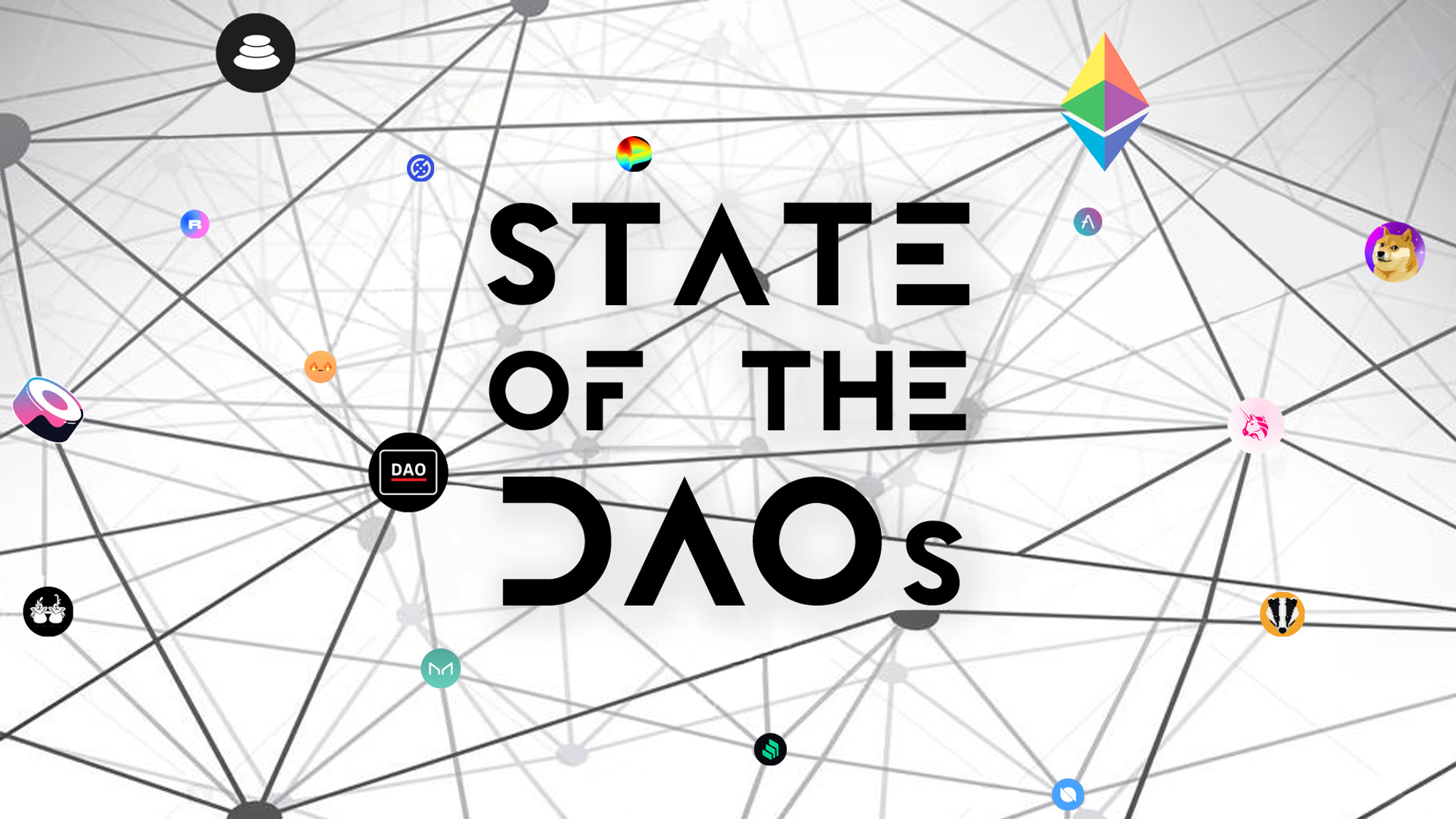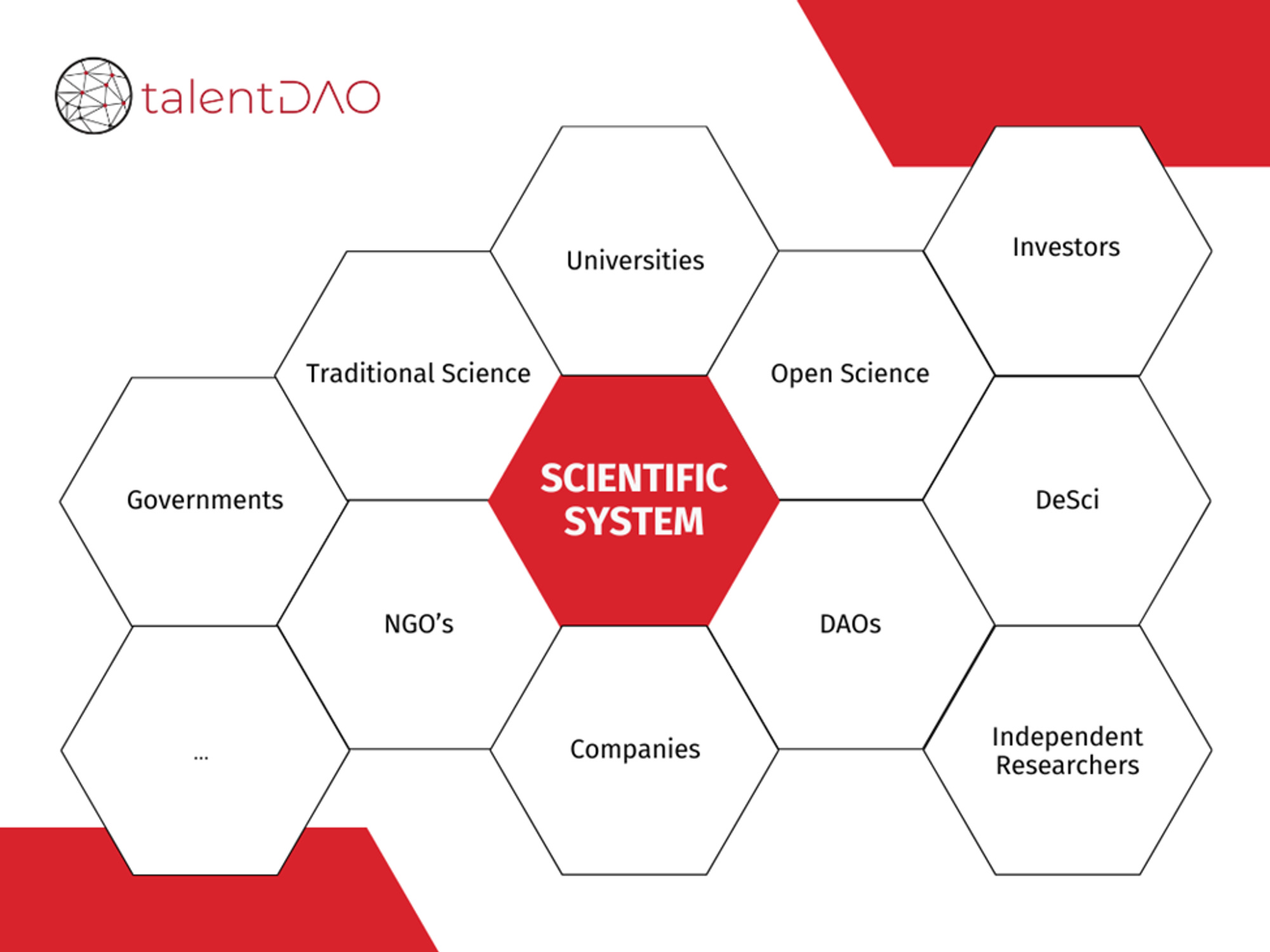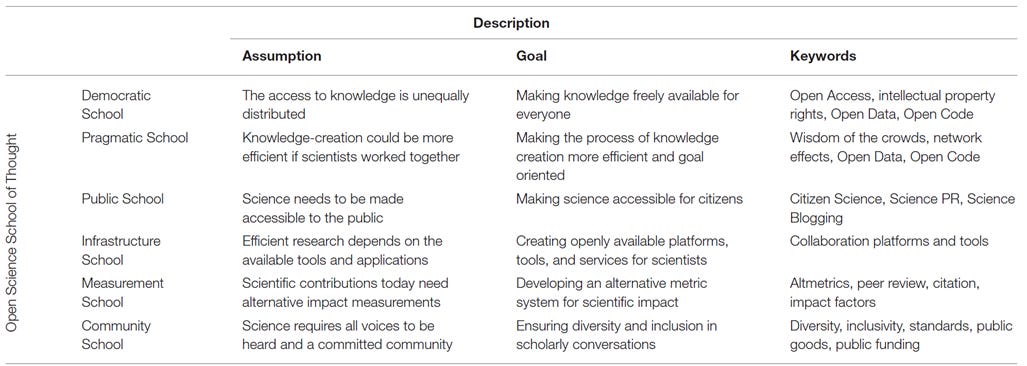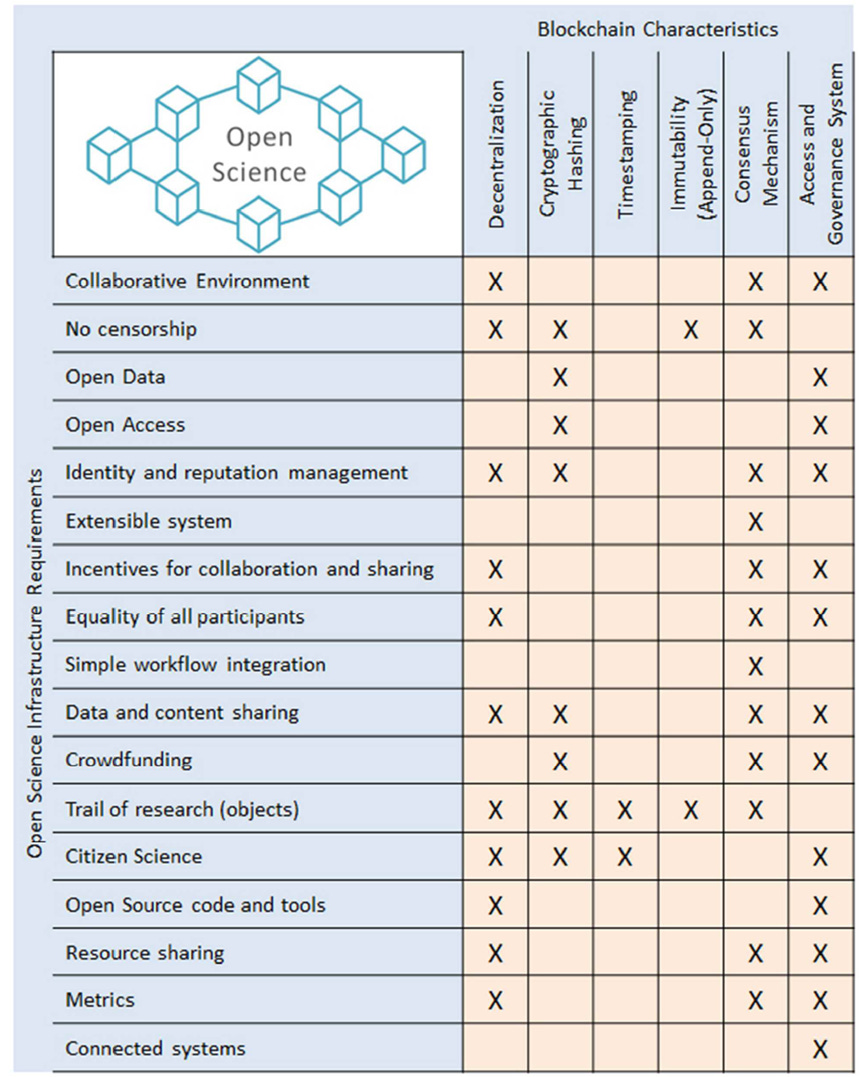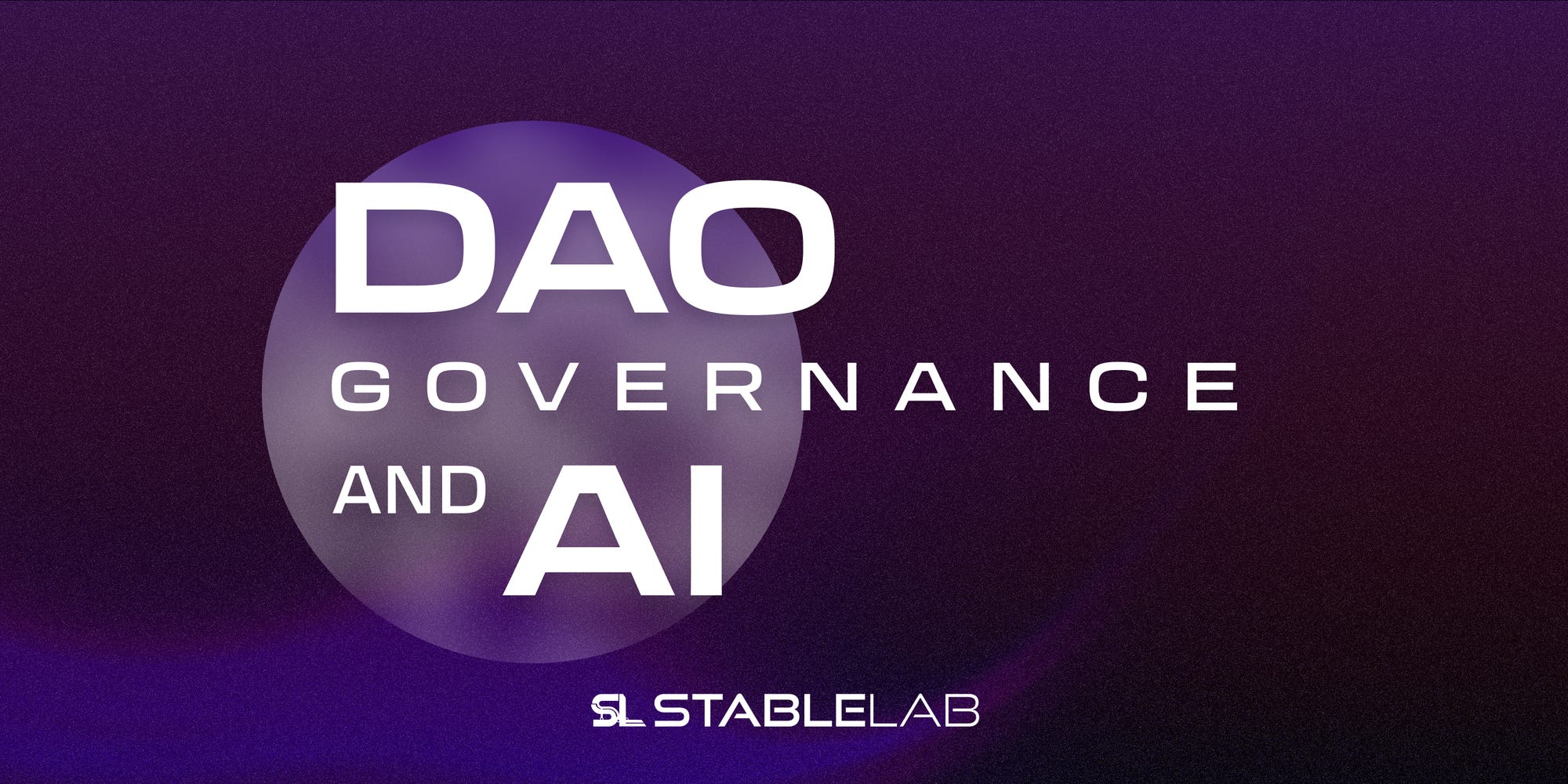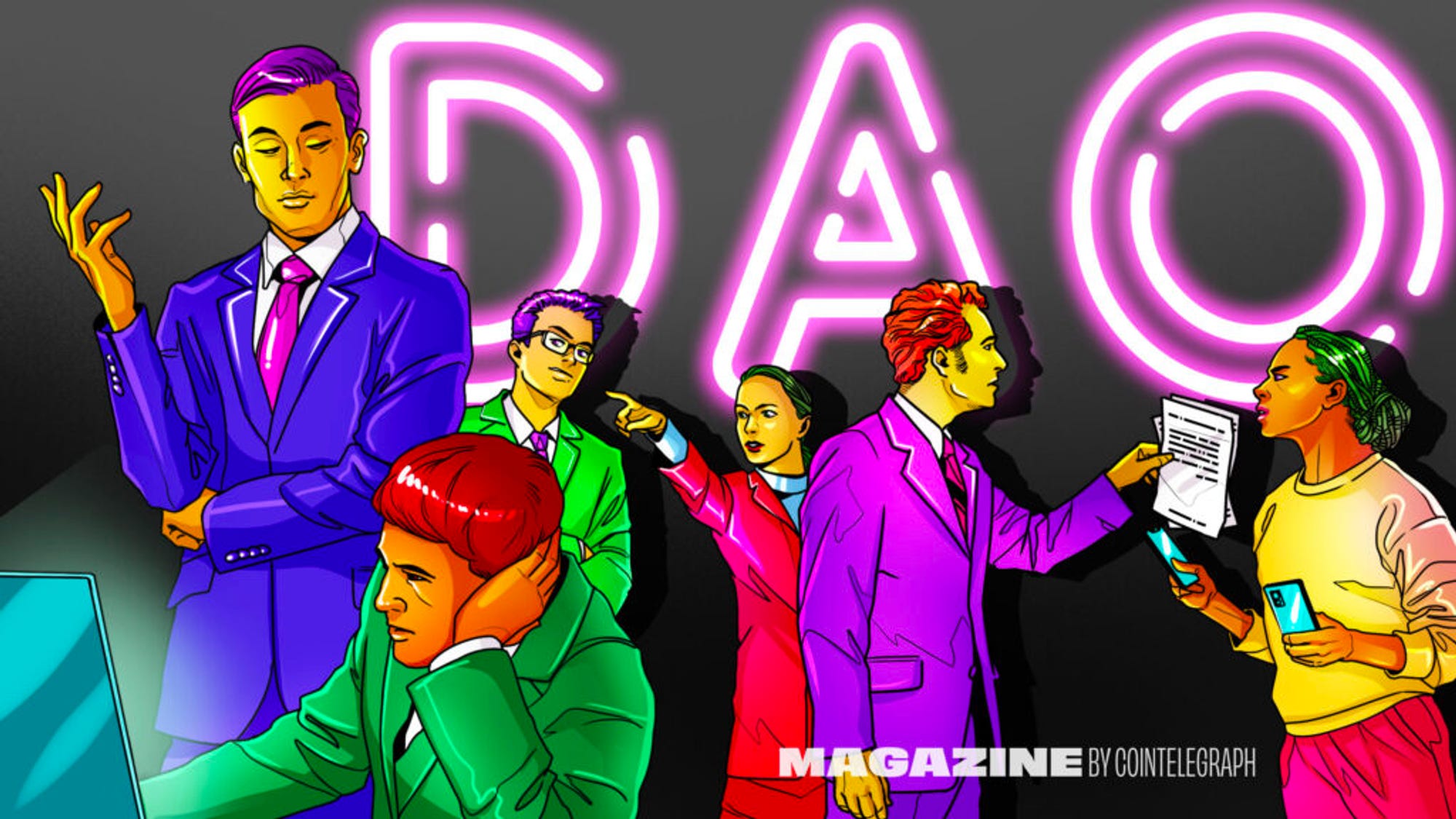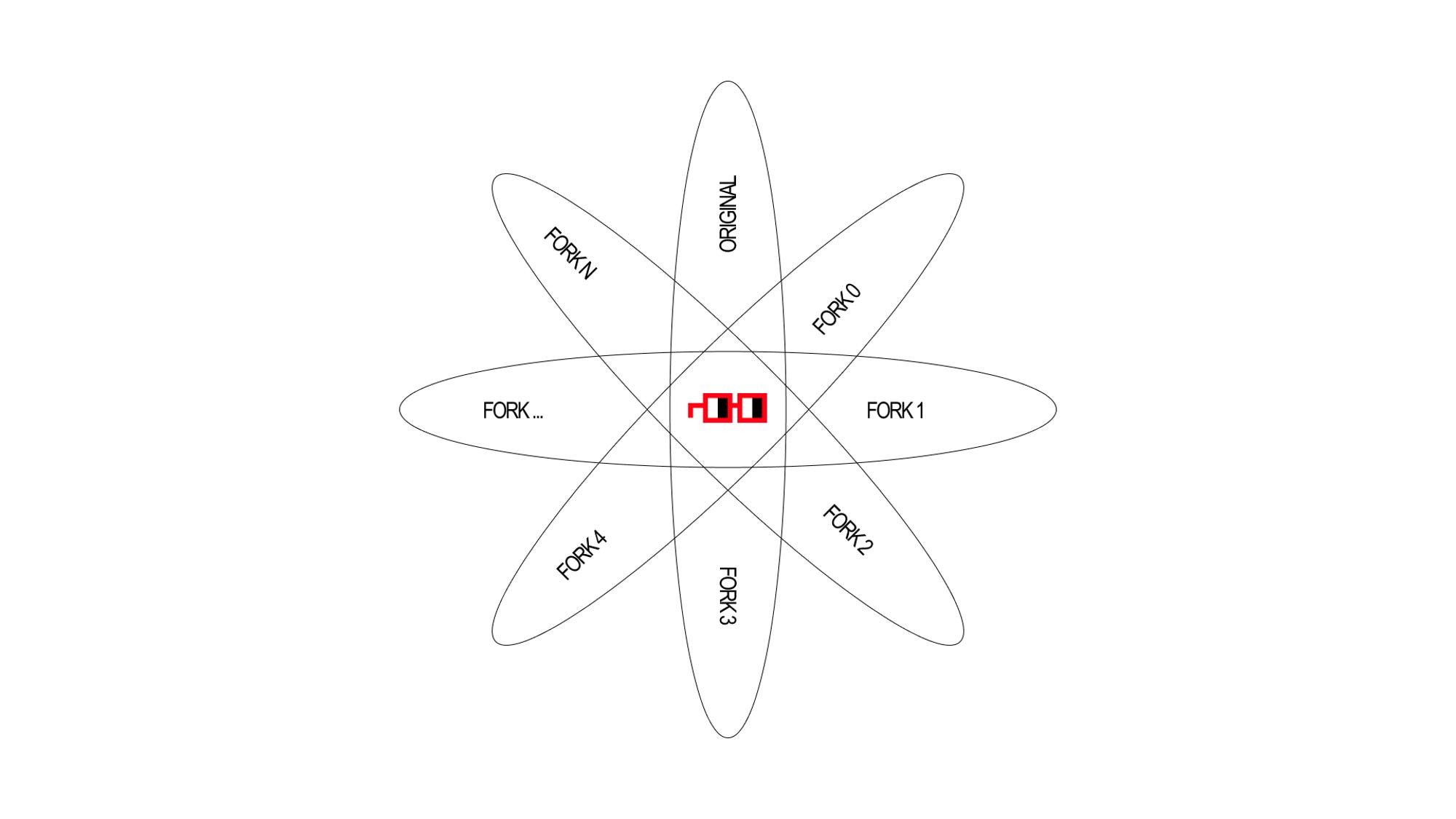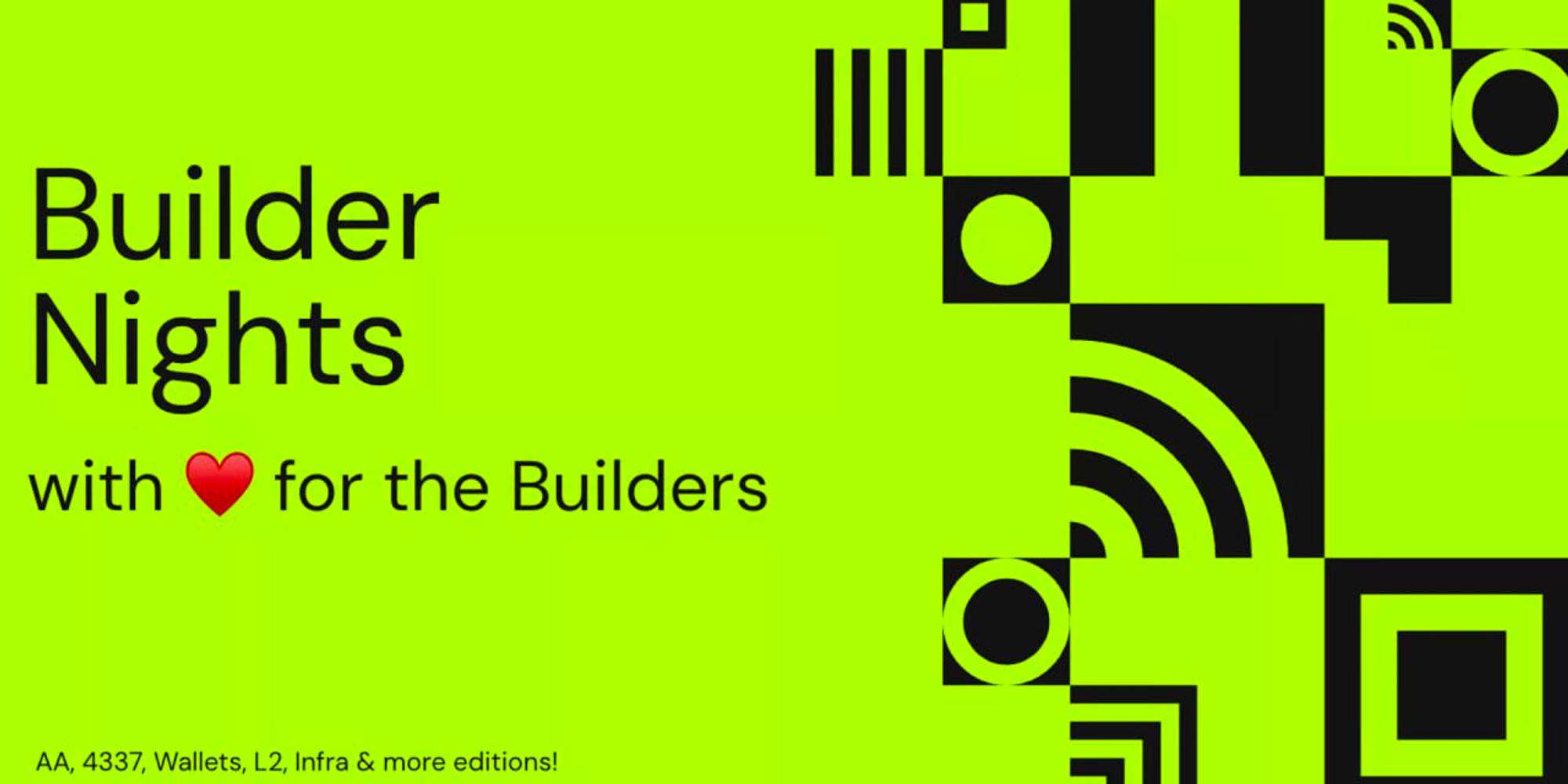A Mental Model to Understand DeSci | State of the DAOs
A Mental Model to Understand DeSci | State of the DAOsYou're reading State of the DAOs, the high-signal low-noise newsletter for understanding DAOs.Sometimes, what we need to do to create a new system is not a complete overhaul of the existing structure but a progressive iteration that makes things better and more efficient. This is a major highlight in this issue's editorial, helping us create the right mental model of the decentralized science movement. As the author writes, "We also proposed a mental model where DeSci is not a “next step” in the history of science, but rather an alternative to help science develop new models to do research in a meaningful way..." Dive straight into the editorial to discover more about how DeSci utilizes blockchain technology to build a more efficient and inclusive scientific ecosystem. Speaking of building, if you're in Dubai, then you shouldn't miss out on the amazing BuidlDubai event featuring builders, developers, and thought leaders in the industry. Our Ecosystem Takes this week features insightful articles on DAO governance and more. Despite the challenges DAOs face with governance, it's good to see new measures being rolled out by DAOs like Nouns DAO in a bid to advance progress and make the governance system work better. This issue is fully packed and loaded to keep you in the know about the latest developments, ensuring you stay updated with the current state of the DAOs. Contributors: angelspeaks, Quilia, Warrior, Vi-Fi, Boluwatife, Kornekt, trewkat, siddhearta, HiroKennelly This is an official newsletter of BanklessDAO. To unsubscribe, edit your settings. A Mental Model to Understand Decentralized Science (DeSci)by Francisco Díaz, from talentDAO In the early 2000s, a group of scientists started questioning the status quo of science and the way it was funded, executed, and how its knowledge was distributed. Those people were worried about modern science’s many flaws including lack of transparency, replication crisis, hard-to-access data, incentives that promoted quantity over quality in academic papers and, in general, pointing out the many aspects where science was being captured by journals, universities, and other centralized institutions. This group formed a movement to promote open and transparent science, which was called Science 2.0 or Open Science (Mirowski, 2018). The promise was to create a series of practices and the development of new infrastructure supported by the introduction of the internet and information technologies. However, this movement has not been able to fix science as intended, and even though it was received with a lot of enthusiasm by researchers, institutions, and States, the scientific system keeps suffering from the same problems. Twenty years after the emergence of open science, a new movement comes into the scene with new technological solutions and organizational frameworks. Using distributed ledger technologies like blockchain and experimenting with decentralized autonomous organizations (DAOs), this “web3” based movement called Decentralized Science or DeSci is consolidating as a new alternative for the scientific system. This article delves into the key features of DeSci, its brief history, context, and recent implementations. We also offer a mental model to better understand how DeSci fits into the scientific system, and how it will become an alternative for researchers rather than an evolution or Science 3.0. As we’ll see here, we prefer to see DeSci as a new player that will collaborate with traditional science and open science. We’ll also see that DeSci is likely to face the same problems that science has faced so far. But first, we need to understand what is wrong with science today and where open science fell short in its attempt to fix it. Traditional Science vs. Open ScienceScience is important because it allows us to come up with solutions to the different needs and challenges that societies face. However, there are challenges that become obstacles to achieving an efficient, accessible, and transparent scientific landscape. Let’s explore some main issues:
All these issues have been pointed out for a while by the research community. The Open Science movement was born to address these issues and reform the scientific system in the early 2000s. Even though it is considered an umbrella term, we can say that Open Science is a family of different schools of thought that tried to form a new framework for the scientific exercise. From open access to open data, to “citizen science” that aims to make science participative.
Since the inception of this movement, it has only grown in popularity among different research communities and has been adopted as a framework for many nations, especially in Europe. In 2021, UNESCO member states signed unanimously to adopt a series of recommendations regarding Open science development, yet with the difficulty that the recommendations signal what must be done, not how (Cudennec et al., 2022). This takes us to another problem: Open Science is a framework for a more transparent and accessible science but is no silver bullet. Twenty years later, the scientific system still faces the same problems. Let’s see where Open Science fell short:
The DeSci ProposalRealizing that the Open Science ethos is not enough to solve the major challenges of science, a group of researchers that got familiar with blockchain technology proposed to build on top of these public chains to create a truly transparent, open, borderless, and tamper-proof scientific movement called Decentralized Science or DeSci. We can summarize the DeSci proposal on the infrastructure side and the organizational side (Ding et al., 2022). Infrastructure: it contemplates the use of Distributed Ledger Technologies (DLT) — public blockchains like Ethereum to make use of the decentralized computer system to run analysis, store data, and distribute value. By running the process “on-chain”, the community can follow up the research and have a common space to share results. DLT creates new ways for researchers to fund, incentivize, and publish scientific work. These advantages is summarized in the following table:
Organization: DLT also enabled the emergence of decentralized autonomous organizations (DAOs). This is a new type of organization that experiments with DLT to run processes on-chain, using smart contracts to automate processes and coding governance systems that fit the necessities of every community. DeSci is adopting this framework since it allows researchers outside traditional organizations to come together, collaborate, and get compensated in an open and transparent way. We can see then that DeSci takes inspiration from the principles of decentralization to empower individual researchers and smaller scientific communities by enabling them to conduct experiments, share data, and publish findings without relying on traditional research institutions. The use of different kinds of tokens is at the base level, which can be used to govern the DeSci group, compensate contributions, fund new research projects, and signal reputation for meaningful research efforts. In the last case, the use of non-transferable tokens can be used as badges that can be seen by anyone with access to the blockchain. Tokens can also be used to wrap intellectual property into smart contracts, in a way that investors, scientists, and other stakeholders can have a share of this digital intellectual property (Clemens Ortlepp, 2021). The funding model is important since it encourages more researchers to collaborate without intermediaries, including those researchers outside academic institutions or established institutions to participate in scientific endeavors. This also enables research that usually doesn’t get funding to receive money from anyone in the world to pursue new studies on themes like longevity or women's health. ExamplesDeSci projects cover biological science (Bischof et al., 2022), social sciences (Wocken & Díaz, 2023), medicine (Subramanian, 2023), climate (Horton et al., 2023), AI (Miao et al., 2023), and many other fields. The next three examples will be covered with more detail to better understand the reach of the DeSci development:
ChallengesNot every DeSci project is a DAO. Not every decentralized research is fully on chain. As an emergent institution in the scientific landscape, we can consider DeSci as an experiment to use blockchain technology and the decentralization ethos to think about new solutions and frameworks to achieve meaningful research. Yet, it is almost certain that DeSci will face similar problems as Traditional and Open science because technology alone cannot fix all the issues previously mentioned. You can’t always code your way out of problems. The tendency to create DAOs or DAO-like institutions from the beginning could be an obstacle rather than a useful tool since DAOs are still in the experimentation phase. As seen in some existing research (Ding et al., 2022; Wocken & Díaz, 2023), many organizations suffered from “going too DAO too fast” because they must deal with governance, token issuance, treasury management, and other tasks on chain that could have been done in an easier way if they opted to run the organization off chain. Badges and onchain certificates are another issue since recent literature (Lee et al., 2023; Zong et al., 2023) show that these instruments are good to enhance credibility but don't necessarily lead to better research standards. Putting these certificates on chain could benefit junior researchers or contributors outside traditional organizations, but there’s still a long way to go to build a common standard of certificates to value these badges. Being based on blockchain technology is another friction point since many DeSci leaders have mentioned that it is hard to onboard scientists and promote project efforts because web3 in general has a bad reputation (Magennis et al., 2023). The skepticism about the technology can make an additional barrier to entry, especially in sociodemographic groups with less adoption. A New Player Joins the SceneWe have introduced the key aspects of DeSci and the challenges that will face in the near future. Blockchain technology opens the door for new funding models, organization types, and incentive models. As a new player in the scientific system, we’ll still have to see what new developments DeSci can bring to solve the old challenges that have deteriorated trust in science, and how these innovations will be received by the general scientific community. We also proposed a mental model where DeSci is not a “next step” in the history of science, but rather an alternative to help science develop new models to do research in a meaningful way. Let’s not think about Traditional/Open/Decentralized science as: ❌ Science 1.0 → Science 2.0 → Science 3.0 ❌ Rather, we should look at the many players that are coupled with the scientific system and how they all play an important role. Science is not only developed by its scientists, but also by the communities that support their projects with funding, legal guidance, and values sharing. And thanks to the decentralized ethos and technology, more people than ever can now support scientific efforts in an open and permissionless way. Ecosystem Takes
DAO Governance and AIAuthor: StableLab 🔑 Insights: The convergence of Blockchain and Artificial Intelligence (AI) is reshaping governance through decentralized autonomous organizations (DAOs), ushering in an era of intelligent, decentralized decision-making.
The synergy between DAOs and AI offers the potential for a new social contract, reshaping governance and society itself. To harness their benefits while mitigating risks, we must tread carefully, establishing evolving ethical guidelines to navigate this transformative journey. Nouns GovernorAuthor: Davidbrai and Eladmallel (Verbs) 🔑 Insights: This article focuses on designing a new version of Nouns DAO in collaboration with the community. The key highlight is the transition from the Compound Governor Bravo to the new Nouns Governor, which emphasizes NFTs voting instead of wallets. It delves into the problems that NFT voting can address and the potential opportunities it may create.
Are DAOs overhyped and unworkable? Lessons from the front linesAuthor: Donovan Choy 🔑 Insights: Different people have diverse perspectives on the true definition of a DAO. Though their opinions might differ, one thing remains constant: DAO governance is a work in progress. This article looks into governance matters and proposed solutions.
DAO governance is not an easy feat to achieve, and although it will take several years to get optimal results, its core values are worth striving for. Forks are goodAuthor: Jacob 🔑 Insights: The article provides a thoughtful analysis of the significance of forking in blockchain protocols. It argues that forks should be seen not as bugs, but as features that drive progress. Forks enable open competition between different visions and approaches within a decentralized network. Rather than a flaw, they are a form of transparent innovation.
Overall, the author compellingly states that Nouns' novel embrace of forking establishes a new standard for DAO governance. It accelerates evolution through internal competition. While this might just be the foundation, there are exciting times ahead! The Casino on MarsAuthor: Matt Huang 🔑 Insights: It’s useful to think of crypto as a new planet that’s being settled. While Skeptics see a desolate planet without purpose, Optimists see the planet’s potential: a blank slate on which we can build an upgraded financial system and internet platform. The most reliable way to figure this out is to disregard the external environment of skepticism or hype and to think independently; look past the speculative activity toward what substantive builders are building and what real people are using.
BuidlDubaiJoin an event for builders in Dubai, dedicated to Account Abstraction, L2s, and Infrastructure. Experience an engaging and friendly atmosphere as builders gather in sunny Dubai 🇦🇪 and connect with all top thought leaders in the web3 space. Organized by Francesco Andreoli🦊, DevRel at ConsenSys and Mirko Garozzo, Dev Evangelist at MetaMask. Immerse yourself in insightful discussions with the biggest brains in the wallet and EIP-4337 space, broaden your network, and gain valuable industry connections. The event promises to be filled with developer insights and an opportunity for valuable networking. 🧠 🤝 Details: 📅 Date: 5th October ⏰ Time: 5 PM - 9 PM 📍 Venue: Register to see address 🎪 Free entry |
Older messages
The Future Is Now | Bankless Publishing Recap
Tuesday, October 3, 2023
Top-shelf Educational Web3 Content Shipped Directly to Your Inbox
Keeping It Lit | BanklessDAO Weekly Rollup
Saturday, September 30, 2023
Catch Up With What Happened This Week in BanklessDAO
Understanding ZK-EVM Types | Layer 2 Review
Thursday, September 28, 2023
Quick Reads and Hot Links Covering the People and Projects Who Are Scaling Ethereum
Let’s Give the DAO Its Cut: Funding DAO Ops Through RPGF Funding | BanklessDAO Weekly Rollup
Saturday, September 23, 2023
Catch Up With What Happened This Week in BanklessDAO
Bear Market Best Practices | State of the DAOs
Thursday, September 21, 2023
You're reading State of the DAOs, the high-signal low-noise newsletter for understanding DAOs.
You Might Also Like
Central African Republic’s CAR memecoin raises scrutiny
Friday, February 14, 2025
Allegations of deepfake videos and opaque token distribution cast doubts on CAR's ambitious memecoin project. ͏ ͏ ͏ ͏ ͏ ͏ ͏ ͏ ͏ ͏ ͏ ͏ ͏ ͏ ͏ ͏ ͏ ͏ ͏ ͏ ͏ ͏ ͏ ͏ ͏ ͏ ͏ ͏ ͏ ͏ ͏ ͏ ͏ ͏ ͏ ͏ ͏ ͏ ͏ ͏ ͏ ͏ ͏ ͏
January CEX Data Report: Significant Declines in Trading Volume Across Major CEXs, Spot Down 25%, Derivatives Down…
Friday, February 14, 2025
According to data collected by the WuBlockchain team, spot trading volume on major central exchanges in January 2025 decreased by 25% compared to December 2024. ͏ ͏ ͏ ͏ ͏ ͏ ͏ ͏ ͏ ͏ ͏ ͏ ͏ ͏ ͏ ͏ ͏ ͏ ͏ ͏
Previewing Coinbase Q4 2024 Earnings
Friday, February 14, 2025
Estimating Coinbase's Transaction and Subscriptions & Services Revenue in Q4 2024 ͏ ͏ ͏ ͏ ͏ ͏ ͏ ͏ ͏ ͏ ͏ ͏ ͏ ͏ ͏ ͏ ͏ ͏ ͏ ͏ ͏ ͏ ͏ ͏ ͏ ͏ ͏ ͏ ͏ ͏ ͏ ͏ ͏ ͏ ͏ ͏ ͏ ͏ ͏ ͏ ͏ ͏ ͏ ͏ ͏ ͏ ͏ ͏ ͏ ͏ ͏ ͏ ͏ ͏ ͏ ͏
ADA outperforms Bitcoin as Grayscale seeks approval for first US Cardano ETF in SEC filing
Friday, February 14, 2025
Grayscale's Cardano ETF filing could reshape ADA's market position amid regulatory uncertainty ͏ ͏ ͏ ͏ ͏ ͏ ͏ ͏ ͏ ͏ ͏ ͏ ͏ ͏ ͏ ͏ ͏ ͏ ͏ ͏ ͏ ͏ ͏ ͏ ͏ ͏ ͏ ͏ ͏ ͏ ͏ ͏ ͏ ͏ ͏ ͏ ͏ ͏ ͏ ͏ ͏ ͏ ͏ ͏ ͏ ͏ ͏ ͏ ͏
AI project trading tips: investment targets and position management
Friday, February 14, 2025
This interview delves into the investment trends, market landscape, and future opportunities within AI Agent projects. ͏ ͏ ͏ ͏ ͏ ͏ ͏ ͏ ͏ ͏ ͏ ͏ ͏ ͏ ͏ ͏ ͏ ͏ ͏ ͏ ͏ ͏ ͏ ͏ ͏ ͏ ͏ ͏ ͏ ͏ ͏ ͏ ͏ ͏ ͏ ͏ ͏ ͏ ͏ ͏ ͏
DeFi & L1L2 Weekly — 📈 Polymarket recorded a new high of 462.6k active users in Jan despite volume dip; Holesky a…
Friday, February 14, 2025
Polymarket recorded a new high of 462600 active users in January despite volume dip; Holesky and Sepolia testnets are scheduled to fork in Feb and Mar for Ethereum's Pectra upgrade. ͏ ͏ ͏ ͏ ͏ ͏ ͏ ͏
DeFi & L1L2 Weekly — 📈 Polymarket recorded a new high of 462.6k active users in Jan despite volume dip; Holesky a…
Friday, February 14, 2025
Polymarket recorded a new high of 462600 active users in January despite volume dip; Holesky and Sepolia testnets are scheduled to fork in Feb and Mar for Ethereum's Pectra upgrade. ͏ ͏ ͏ ͏ ͏ ͏ ͏ ͏
Donald Trump taps crypto advocate a16z’s Brian Quintenz for CFTC leadership
Friday, February 14, 2025
Industry leaders back Brian Quintenz's nomination, highlighting his past efforts at the CFTC and potential to revamp crypto oversight. ͏ ͏ ͏ ͏ ͏ ͏ ͏ ͏ ͏ ͏ ͏ ͏ ͏ ͏ ͏ ͏ ͏ ͏ ͏ ͏ ͏ ͏ ͏ ͏ ͏ ͏ ͏ ͏ ͏ ͏ ͏
⚡10 Tips to Make a Living Selling Info Products
Friday, February 14, 2025
PLUS: the best links, events, and jokes of the week → ͏ ͏ ͏ ͏ ͏ ͏ ͏ ͏ ͏ ͏ ͏ ͏ ͏ ͏ ͏ ͏ ͏ ͏ ͏ ͏ ͏ ͏ ͏ ͏ ͏ ͏ ͏ ͏ ͏ ͏ ͏ ͏ ͏ ͏ ͏ ͏ ͏ ͏ ͏ ͏ ͏ ͏ ͏ ͏ ͏ ͏ ͏ ͏ ͏ ͏ ͏ ͏ ͏ ͏ ͏ ͏ ͏ ͏ ͏ ͏ ͏ ͏ ͏ ͏ ͏ ͏ ͏ ͏ ͏ ͏ ͏ ͏ ͏ ͏
Interview with CryptoD: How He Made $17 Million Profit on TRUMP Coin
Friday, February 14, 2025
Author | WUblockchain, Foresight News ͏ ͏ ͏ ͏ ͏ ͏ ͏ ͏ ͏ ͏ ͏ ͏ ͏ ͏ ͏ ͏ ͏ ͏ ͏ ͏ ͏ ͏ ͏ ͏ ͏ ͏ ͏ ͏ ͏ ͏ ͏ ͏ ͏ ͏ ͏ ͏ ͏ ͏ ͏ ͏ ͏ ͏ ͏ ͏ ͏ ͏ ͏ ͏ ͏ ͏ ͏ ͏ ͏ ͏ ͏ ͏ ͏ ͏ ͏ ͏ ͏ ͏ ͏ ͏ ͏ ͏ ͏ ͏ ͏ ͏ ͏ ͏ ͏ ͏ ͏ ͏ ͏ ͏ ͏ ͏ ͏ ͏
